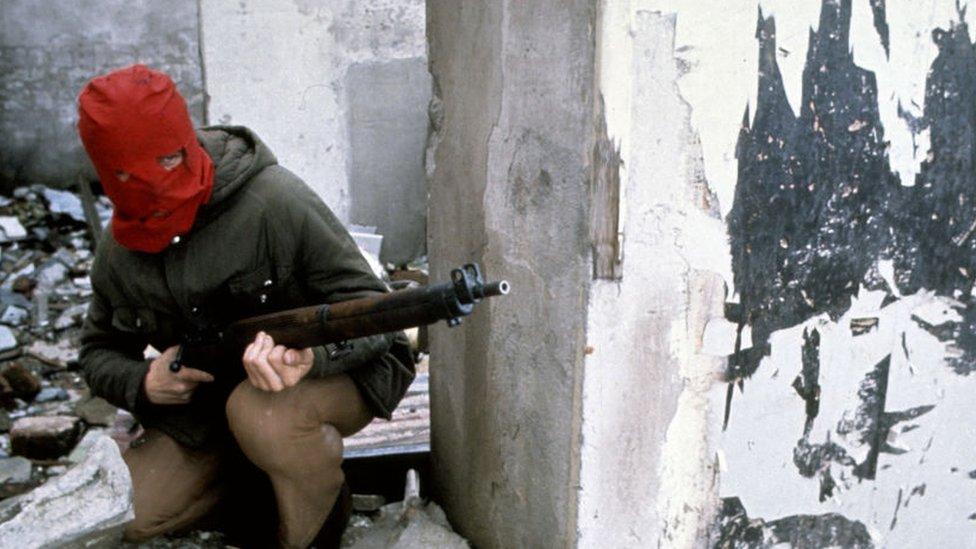NI Troubles: Call to shelve legacy bill rejected
- Published
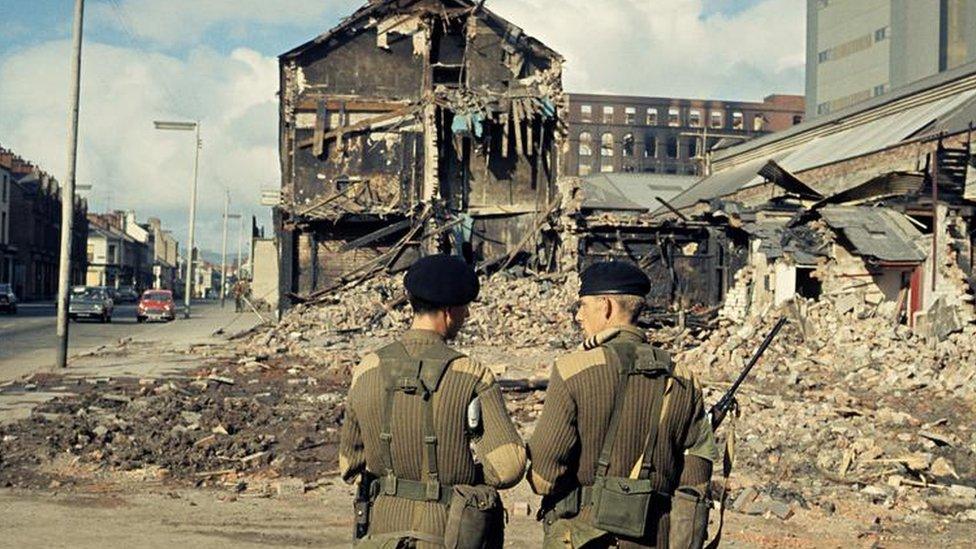
The Troubles was a period of conflict which lasted for 30 years and cost the lives of more than 3,500 people
A new call for the government to shelve its Troubles legacy bill has been rejected, with a minister stating he sees "no circumstances" in which it would be withdrawn.
The bill, which introduces conditional amnesties, is on course to pass into law before summer.
Victims' commissioner Ian Jeffers said: "We would love to see the bill withdrawn, it is as simple as that."
But Northern Ireland Office (NIO) Minister Lord Caine rebuffed the call.
He told BBC News NI: "The bill certainly will not be voted down (in Parliament) and I see no circumstances in which it would withdrawn."
He indicated there will be additional changes to the bill beyond those outlined recently and urged people "to give them a fair wind when they see them".
The bill would create a new information recovery body, headed by a senior judicial figure, to produce reports on hundreds of pre-1998 incidents in which people were killed or seriously injured.
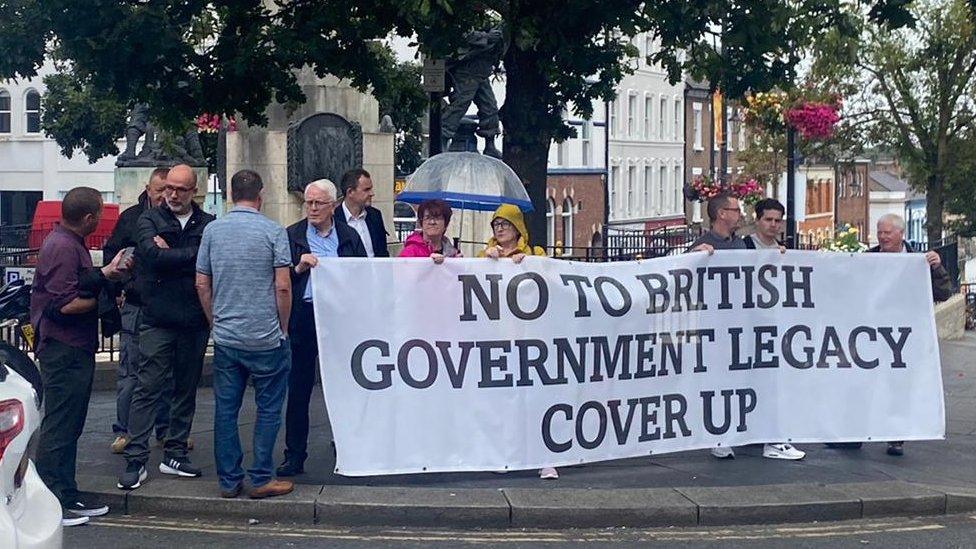
Many victims' groups are opposed to the legislation put forward
It would offer conditional amnesties to perpetrators who co-operate and "conduct criminal investigations where appropriate".
It would also end all future civil actions related to the Troubles and there would be no further inquests beyond those already commenced.
Mr Jeffers said: "It is believed it will not deliver truth recovery and for some it removes the opportunity for justice they continue to hold out for.
"Lord Caine has made a good attempt at listening to victims and survivors but I still have not heard anything coming from government to say this will work for victims and survivors.
"I am genuinely worried we are going to see the bill pushed through by government for its own means and not really for reconciliation in Northern Ireland."
Arising from a 2019 manifesto commitment, the government pledged better protection for military veterans from investigations and prosecutions related to the Troubles.
The bill is opposed by victims' groups and Northern Ireland political parties, as well as the Irish government.
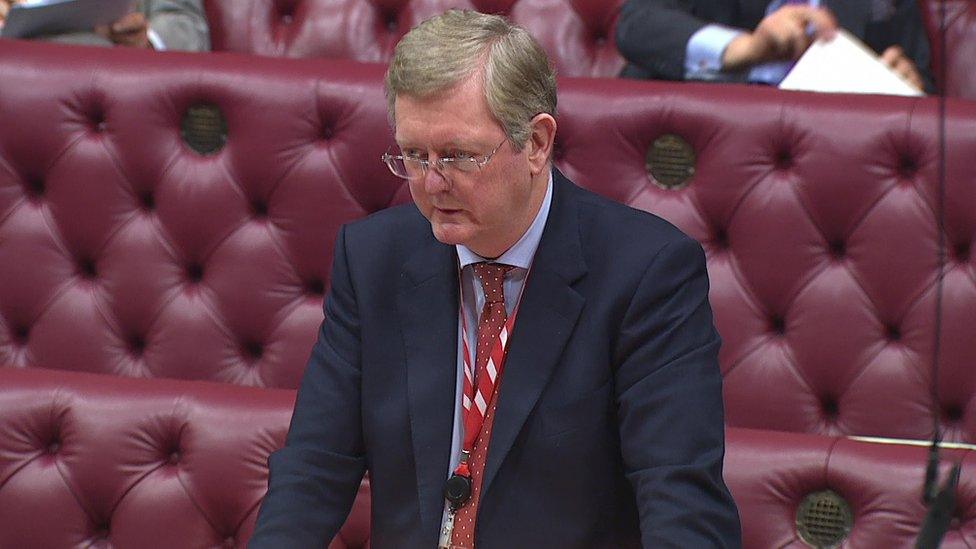
Lord Caine said the narrative around the legislation "could have been more victim-focused"
Recently, experts at the United Nations and the Council of Europe called for the bill to be withdrawn, arguing it was not compatible with the UK's human rights obligations.
At the bill's second reading in the House of Lords six weeks ago, Lord Caine outlined amendments which the government will table in coming weeks, claiming they will improve the investigative powers of the information body.
They also propose tougher penalties for those who refuse to co-operate.
Lord Caine said: "I would be very, very surprised if I do not table more amendments.
"The responsibility I have is to try and put this bill in the best possible shape.
"If you were to ask me in a personal capacity: 'Do I think the narrative around the legislation could have been better and more victim focused?' then the answer would almost certainly be: 'Yes.'"
"But in politics I am often less interested in how we got to a situation than how we actually get out of a situation and how we improve things."
Related topics
- Published31 August 2022
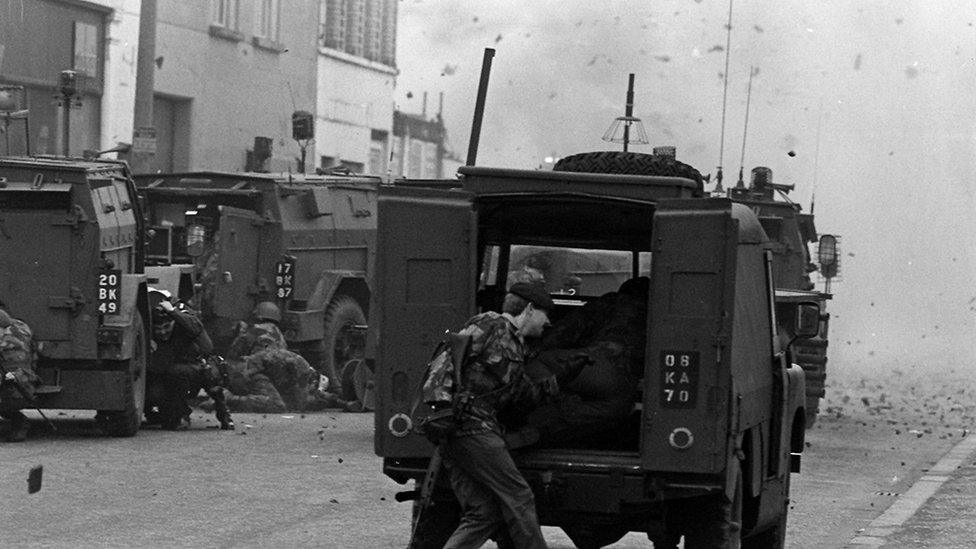
- Published9 December 2022
